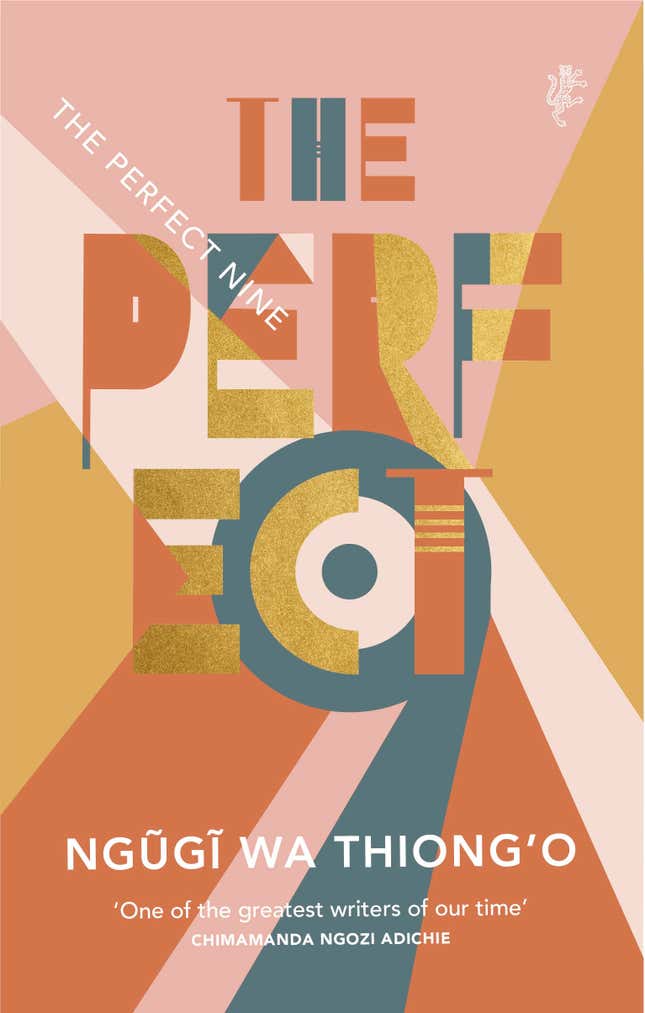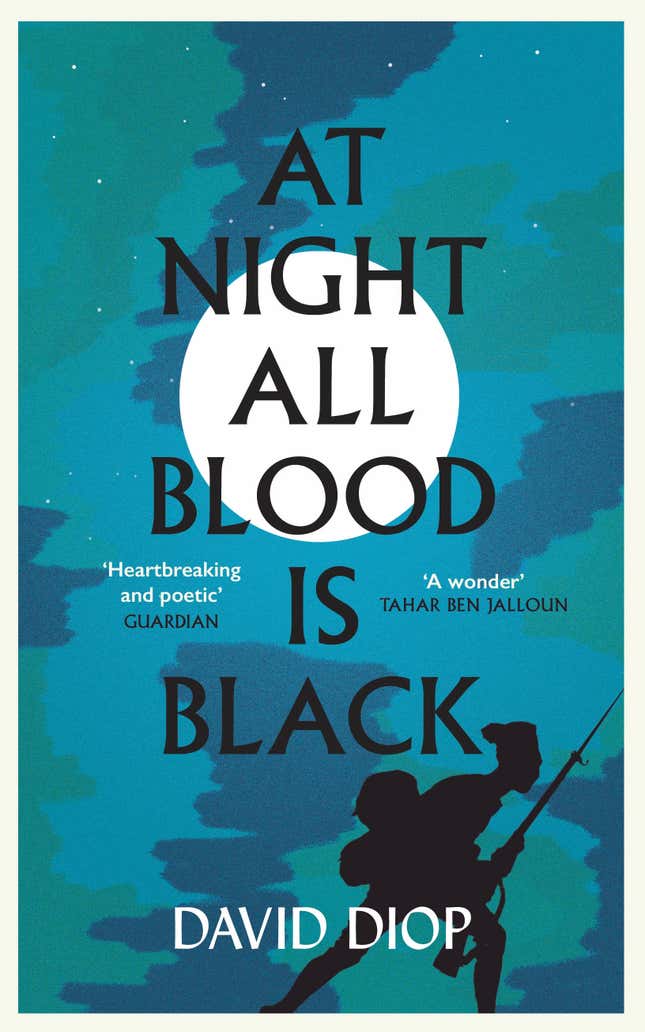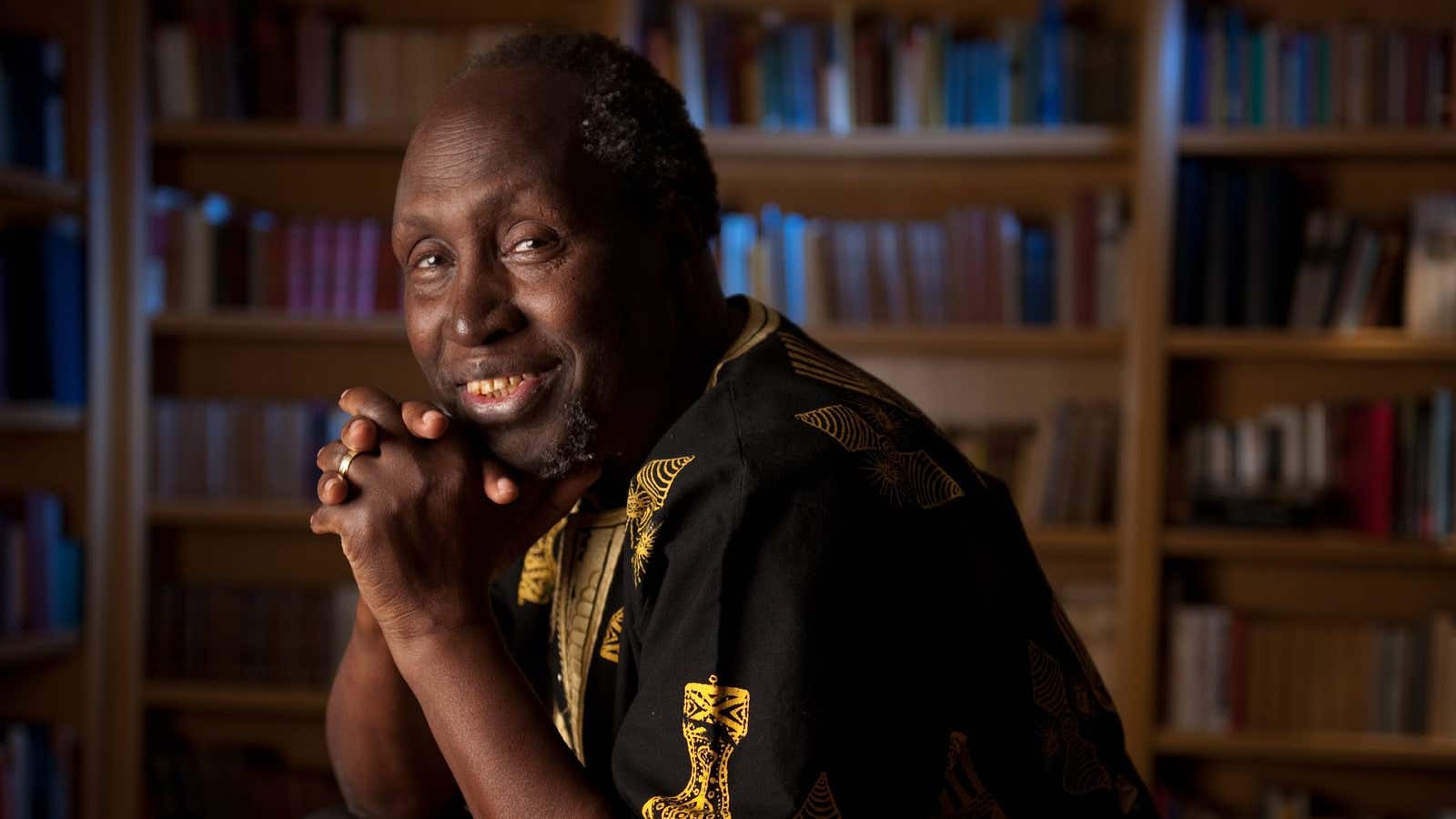The longlist for this year’s International Booker Prize is the first in the award’s 16-year history to feature a translation by a book’s own author. The Perfect Nine: The Epic of Gikuyu and Mumbi was translated by 83-year-old author Ngũgĩ wa Thiong’o into English from Gikuyu, a language spoken by just over 6 million Kenyans.
He is also the first nominee for a work originally written in an indigenous African language.

Thiong’o’s book is a blend of folklore and mythology that tells the origin story of the Gikuyu clan. Gikuyu and Mumbi, the first man and woman according to Kenyan legend, ask their nine daughters to choose their suitors by embarking with them on a treacherous quest. Along the way they are tested, making for an exhilarating feminist tale. The adventure of the youngest daughter, who cannot walk, takes center stage.
“Ngũgĩ masterfully sings us through an origin story written in verse,” the judges write of The Perfect Nine. “This book is a magisterial and poetic tale about women’s place in a society of Gods. It is also about disability and how expectations shape and determine characters’ spiritual anchoring.”
Thiong’o is a passionate advocate for African authors writing in their native tongue as a form of preserving culture and achieving linguistic decolonization. “Language, any language, has a dual character: it is both a means of communication and a carrier of culture,” he has written. In the 1970s, he was imprisoned by Kenya’s postcolonial government after writing a critically political play in Gikuyu. While in prison, he wrote the first modern Gikuyu novel, Devil on the Cross, on toilet paper.
“By choosing to rewrite the story of the Perfect Nine in Homeric verse and then retranslating his original Gikuyu version into English, Ngũgĩ gently challenges the dominance of one kind of myth over another,” Nilanjana Roy writes in a review for the FT. “Any reader who grew up in a former colony and learnt English understands this imbalance intimately.”
Thiong’o is currently based in California, and is the co-founder of the International Center for Writing and Translation at the University of California, Irvine.

A second African author is featured on the list: Senegalese-born David Diop is longlisted for his second novel, At Night All Blood is Black, which details the experiences of two Senegalese soldiers fighting in World War I for the French (nearly 2 million Africans were pulled into the war.) The judges described the book as “like nothing else in terms of tone and power, it is a blinding revelation, an incantatory work of kinship and terror.”
The 13 books nominated originate from 12 countries and have been translated from 11 languages. The full list is as follows:
- I Live in the Slums by Can Xue, translated from Chinese by Karen Gernant & Chen Zeping
- At Night All Blood is Black by David Diop, translated from French by Anna Mocschovakis
- The Pear Field by Nana Ekvtimishvili, translated from Georgian by Elizabeth Heighway
- The Dangers of Smoking in Bed by Mariana Enríquez, translated from Spanish by Megan McDowell (nominated for a fourth time)
- When We Cease to Understand the World, by Benjamín Labatut, translated from Spanish by Adrian Nathan West
- The Perfect Nine: The Epic Gikuyu and Mumbi by Ngũgĩ wa Thiong’o, translated from Gikuyu by the author
- The Employees by Olga Ravn, translated from Danish by Martin Aitken
- Summer Brother by Jaap Robben, translated from Dutch by David Doherty
- An Inventory of Losses by Judith Schalansky, translated from Germany by Jackie Smith
- Minor Detail by Adania Shibli, translated from Arabic by Elisabeth Jaquette
- In Memory of Memory by Maria Stepanova, translated from Russian by Sasha Dugdale
- Wretchedness by Andrzej Tichý, translated from Swedish by Nichola Smalley
- The War of the Poor by Éric Vuillard, translated from French by Mark Polizzotti
The shortlist will be announced on April 22, and the winners of the prize, £50,000 split between the author and the translator, on June 2.
